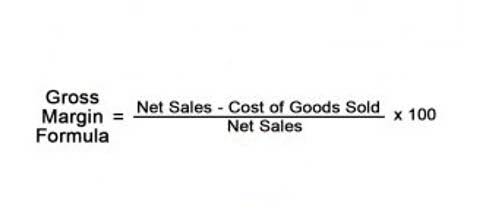
When a vendor invoices a business with net terms, they’re providing a finite period of time for their invoice to be resolved — usually within a 30, 60, or 90-day payback period. If a net terms meaning buyer doesn’t comply within this period, a supplier can insist that they pay them back with interest accrued. We hope this guide has provided you with a better understanding of net terms, as well as its many advantages and challenges. Remember, if it is a standard in your industry to offer terms, we encourage you to offer them. If terms are not standard in your industry, proactively offering them may set you apart from competitors, attract new customers, and grow your business.
Step #2: Check your client’s history
Net payment terms usually include a number, such as 30, 45, 60, or even 90. This simply shows the number of days that the recipient has before invoice payment is due. To compensate for the cashflow gap caused by extended wait times, businesses may be forced to rely on external financing solutions like loans or lines of credit. However, Food Truck Accounting this dependence on external funding comes at a cost, with high interest fees eating into profits.
‘Tis the Season: 7 Tips to Manage Black Friday Inventory
One of the most significant ways Settle does this is by offering extended payment terms for companies. This means Settle will pay vendors on the company’s behalf so the company can focus on growth and expansion. Most importantly, these terms are hit on time so companies and vendors can benefit from the perks of established net terms.
Order to Cash

For example, 30-day payment terms are common practice amongst companies in the UK, while Scandinavian businesses usually operate with shorter 14-day payroll payment terms. Knowledge of these terms equips businesses with the ability to conduct transactions efficiently, without faltering on the agreed-upon deadlines. Instead of asking a client for immediate payment after a product has been delivered or service performed, the customer pays the invoice within the time set by the company. In the case of net 15, the client has 15 days to pay the invoice. To deal with this reality, most business owners offering net payment terms also charge interest fees on late payments.
- However, there is also a “due date” at the top that clarifies what day payment is due.
- For instance, industries with a high turnover of inventory might insist upon upfront payments to remain cash positive.
- Learn how you can offer net terms on your terms with a free trial today.
- Using net terms effectively often comes down to clear communication.
- For B2C companies, offering net terms can differentiate your business from its competitors and help you manage accounts receivable.
- However, various such terms exist which can be utilised based on the credit a company wishes to offer its customers.
The Accounts Payable Aging Report is an essential tool for businesses with a large number of accounts payable to track. In this comprehensive guide, we explore everything your business needs to know about net terms (also known as credit terms). We deep dive into digital net terms platforms, explore the advantages and disadvantages of net payment terms, and explain how to launch an effective payment terms program. With streamlined and automated AR processes, you can stay on top of who owes you what, whether they’re late, automatically apply late fees, and send payment reminders without lifting a finger. On the other hand, if one client often pays late, you might want to change it to a Net 15 instead of a Net 30.

This means that the invoice is due at the end of the month following the invoice’s date. For example, if you issue an invoice dated 15 July with net monthly terms, payment will be due on 31 August. In either case, payment is due at the end of the month following the month in which goods or services were delivered.

Net payment terms can be simply understood as the agreed-upon timeframe within which a customer is expected to settle an invoice once a product or service has been received. In addition, these terms can encompass incentives like discounts for customers who opt for early payments, a tactic used by businesses to encourage punctual settlements. Understanding these various terms is crucial for businesses to maintain healthy cash flow and foster positive relationships with customers.
- Another online product, Fundbox Pay, was created specifically to help business owners get away from acting like banks by providing financing for their clients.
- For example, if the terms are Net 15, then the customer must pay within 15 days.
- CO— aims to bring you inspiration from leading respected experts.
- Have you ever seen terms like Net 30, Net 60, or Net 90 on an invoice before?
- However, before making any business decision, you should consult a professional who can advise you based on your individual situation.
What are the most common net terms?
It’s not ideal for your customer, but it will incentivize them to pay on time to avoid late fees. However, you can also choose whatever net terms work best for your business. Landscaping companies, for example, usually request payment within seven days. In this way, net payment terms that don’t require upfront or immediate payment are a form of short-term finance – usually without interest – given to the buyer, by the seller.
Settle and Dwight Funding Announce Partnership for Hypergrowth Consumer Brands
Terms that are too short, may mean they are too aggressive and in need of the cash faster. Learn why new businesses often offer net 30 accounts to build business credit. When businesses refer to net payment terms, this usually refers to a period of 15, 30 or 60 calendar days before the invoice amount is due. In some cases, companies may even offer up to 90 calendar days until an invoice is due. This is typically offered for very large companies – such as big box retailers or loyal customers – who have a strong payment history with the business. They also enable you to offer payment plans to sellers struggling with cash flow – or even allow them to pay in installments via a buy now, pay later agreement.
